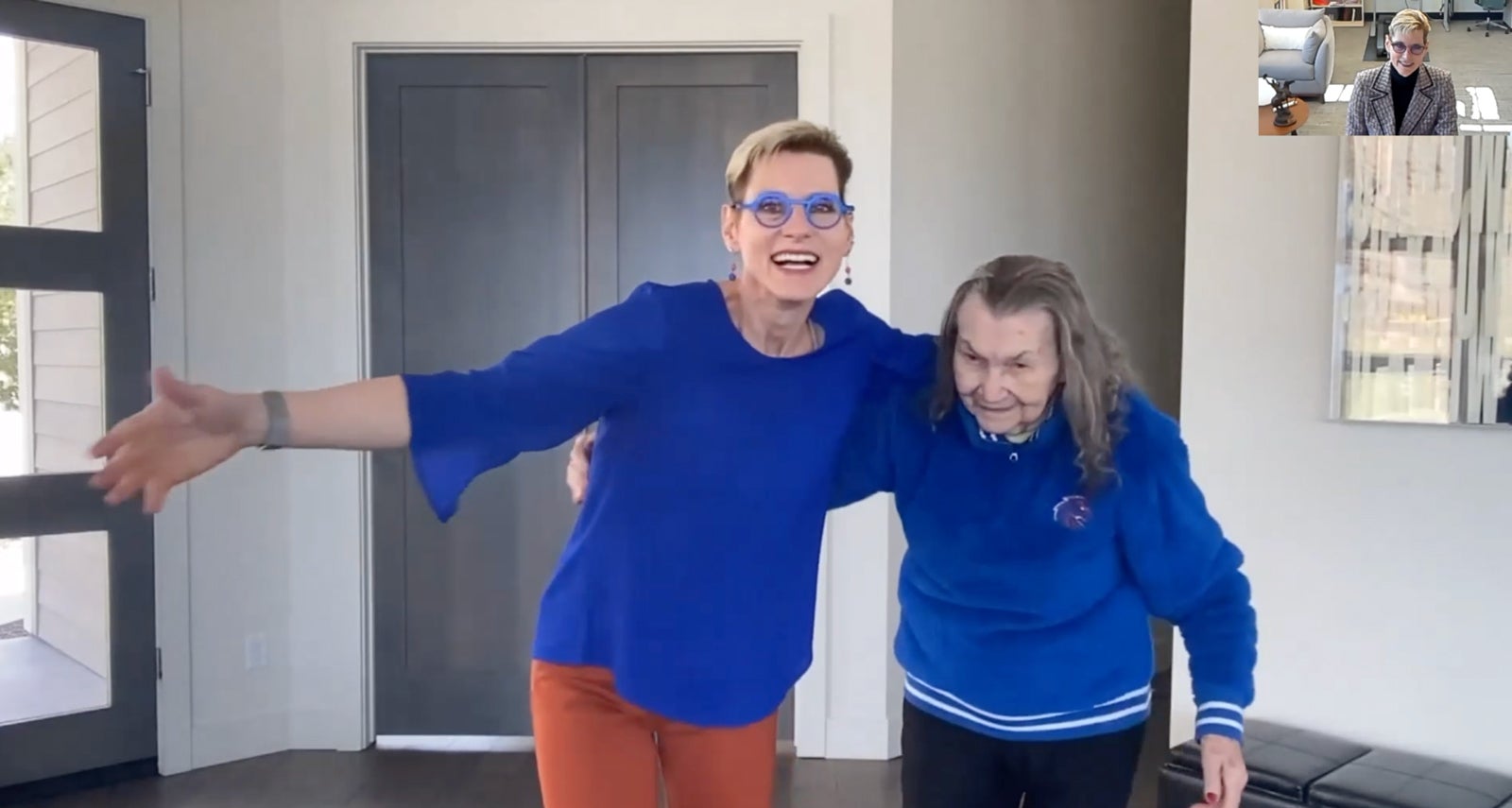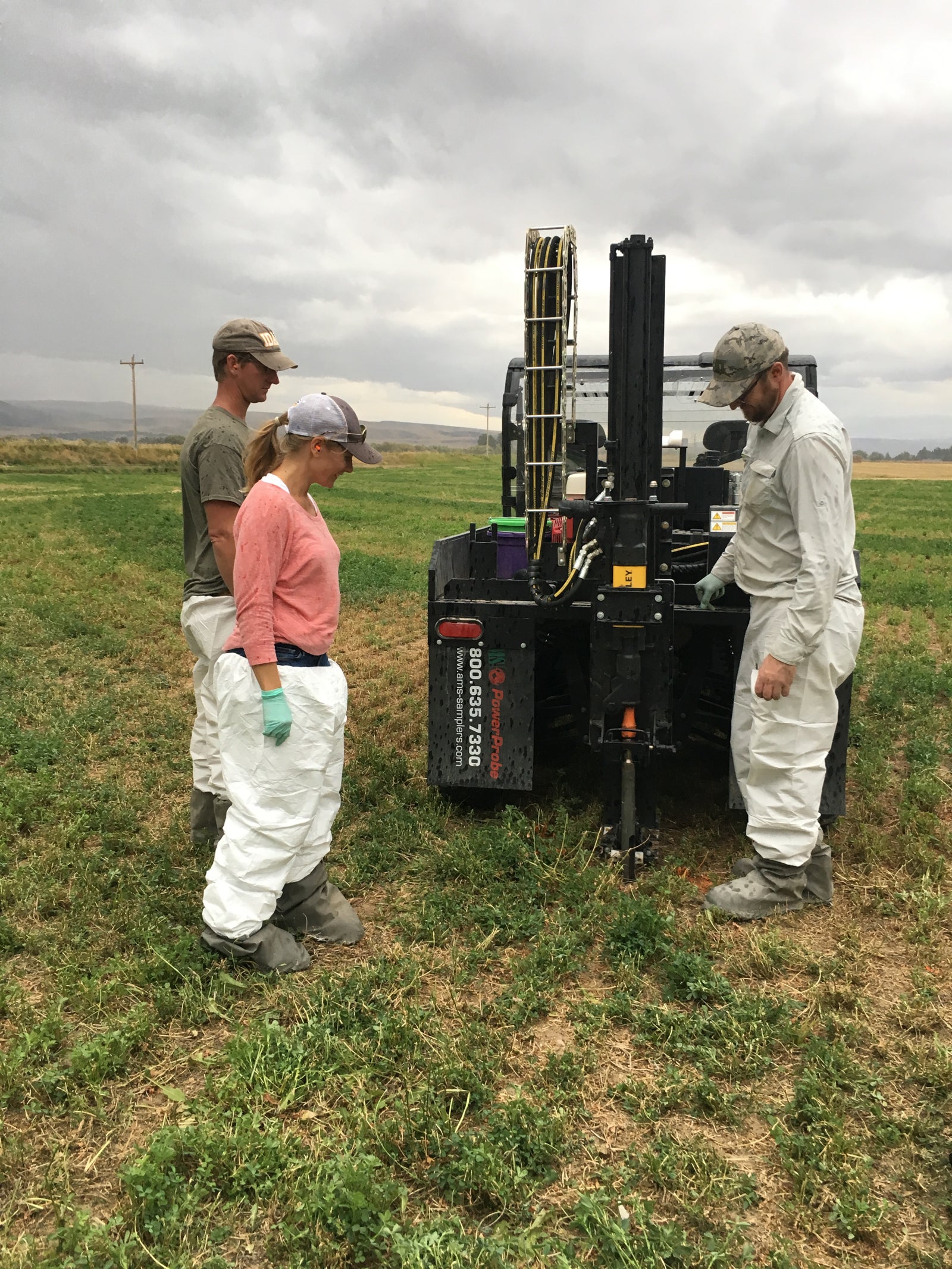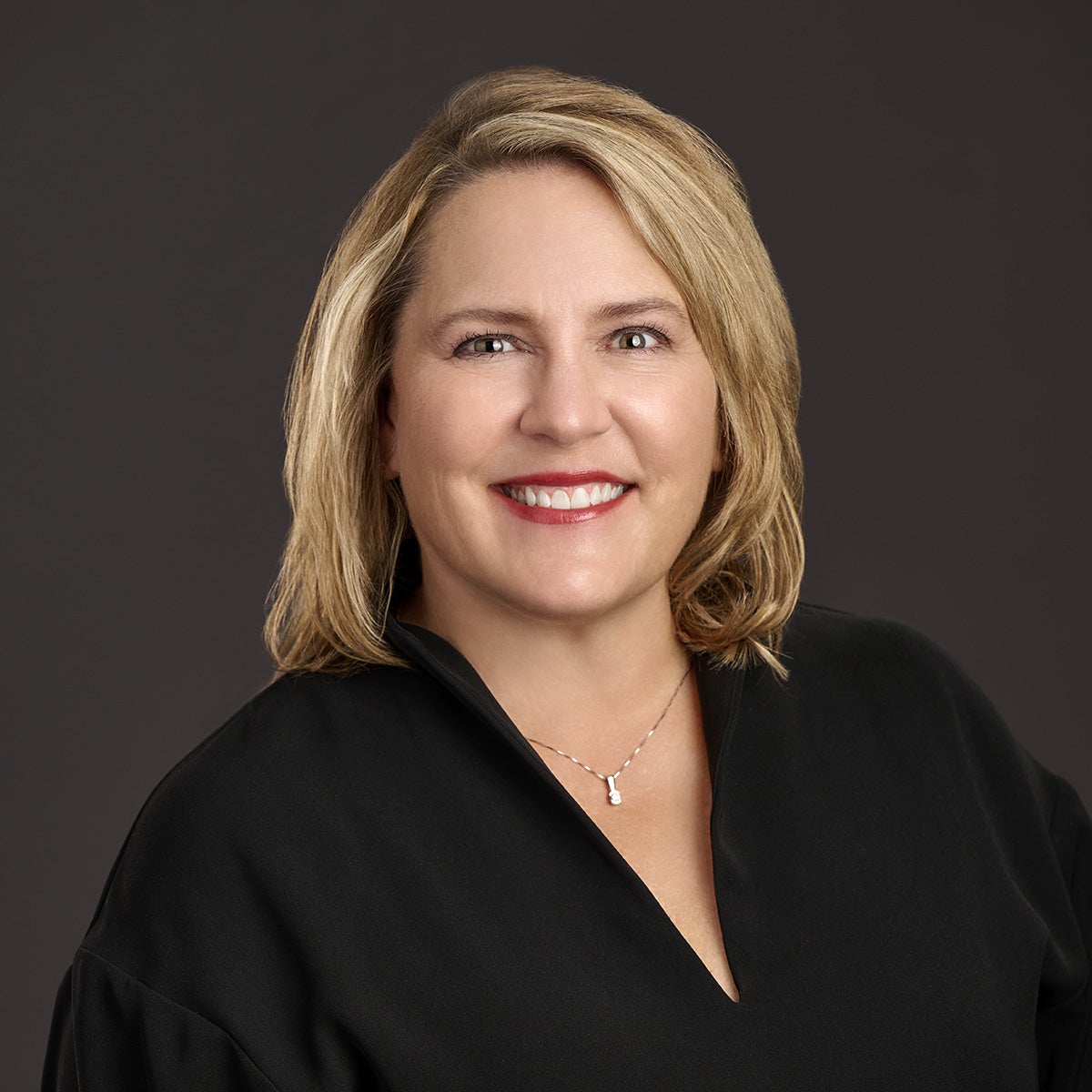
Boise State’s College of Health Sciences and its students, faculty and staff members increasingly partner with the entities on the front lines of care to ensure that the pressing problems get solved – for people like Boise State’s president, Marlene Tromp.
Along with her considerable responsibilities as the head of the university and her many other hats – among them, runner, mother and writer – Tromp is a caregiver.
And as so many learned the hard way during the pandemic, caregiving is hard, hard work.
In late February, Tromp kicked off the annual Idaho Family Caregiver Conference by sharing her highly personal and deeply emotional family story.
“My mom’s story is in many ways my story,” she said, going on to describe the wonders, challenges and hardships of the past half-dozen years.
Tromp and her family are among the hundreds of thousands in Idaho for whom resources such as the conference, the Idaho Caregiver Alliance and its Family Caregiver Navigator are meant – given this particular hat that Tromp wears, she is one of what College of Health Sciences Professor Sarah Toevs, director of the Center for the Study of Aging, calls “the unseen workforce.”
St. Luke’s and SelectHealth are intent on seeing that population. The health system and insurance entity are supporters of Toevs’ efforts and those of the alliance and the navigator, sponsored by the alliance, to acknowledge and equip caregivers for their vastly underappreciated work and overlooked value in community health.
The Idaho Caregiver Alliance recently was selected to receive $10,000 in funding from the St. Luke’s/SelectHealth Idaho Innovation Fund for advancing the well-being of caregivers by promoting collaboration that improves access to quality supports and resources, including respite for family caregivers across the lifespan.
“To be an agent of change, we work on system change,” Toevs said.
The funding will support an undergraduate Spanish-speaking student who is conducting research on interventions for caregivers in Latinx communities and a bilingual navigator that can boost services in underserved areas within the Boise State footprint, Toevs said.
“We double the value of an award when we give it back to students,” she said.
For about 10 years, the alliance has been working with dozens of organizations to support the thousands of family members who care for other family members of all ages. There are now about 1,500 organizations, agencies and caregivers working with the alliance across the lifespan, across the state.
All of the efforts are meant to keep people in their homes and communities, out of emergency rooms unnecessarily and out of danger, and to equip caregiving family members for what can be, as Marlene Tromp noted in her moving talk, difficult and taxing effort for long periods of time. Toevs estimates there may be 300,000 or so caregivers in Idaho, and that one in four adults may be engaged in this type of effort at any given point. Medicaid, and state and federal agencies, calculate the value of this type of work in the billions; closer to home, supporters such as St. Luke’s and SelectHealth clearly see the importance of reinforcing the fragile support net.
“St. Luke’s and SelectHealth understand the value of the family caregiver.” — College of Health Sciences Professor Sarah Toevs, director of the Center for the Study of Aging
Launched in August of 2020 and accessed by caregivers through the web or phone, the Family Caregiver Navigator service has provided a lifeline for families, pairing them with skilled and trained specialists who can help them map care plans, prioritize their needs and identify resources.
Sometimes those needs might appear to be small while they are in fact highly meaningful in keeping the unpaid, informal caregiving net together, Toevs notes, describing a woman in the rural area around Ola, Idaho, whose ability to provide care had eroded during the pandemic along with her own health. Through navigator support, she began a walking program with the goal of losing weight. And the pandemic turned up just how ill-equipped many grandparents are when tapped to support the education of young children, as many were during COVID-19.
“What we’ve come to realize is, if we don’t speak to this in economic terms, we are missing a crucial component,” Toevs said. “That’s a huge push for us.”
Toevs and the team aren’t the only recent beneficiaries of St. Luke’s/SelectHealth support.
Cynthia “Cynnie” Curl of the Center for Excellence in Environmental Health & Safety, Public Health and Population Science, recently received $30,000 to support research her lab is doing focused on the health and safety of agricultural workers.
Because of such factors as pesticides and farm equipment, much of agricultural labor is more dangerous than other work, and farm workers are not always thoroughly trained and educated in risk avoidance and protective measures.
Women who work in agriculture may not always have access to protective gear in appropriate sizes and may not receive the same quantity or type of safety training as their male counterparts. In particular, Curl and her research team are interested in improving the health and safety of Latina farmworkers, a growing but often overlooked component of the agricultural workforce, and are working to measure, and ultimately reduce, pesticide exposures among this population. Curl credits a cross-disciplinary team, and the collaboration of Dr. Rebeca Som Castellano within Boise State’s sociology department, Lisa Meierotto of the School of Public Service and post-doc Carly Hyland in particular, for the progress being made toward answers and solutions.

“I think we’re in a really good position to do something actionable here,” she said. “A lot of these things are real wins …
“I think a lot of farm owners could get behind safety training, proper equipment and appropriate sizes for protective gear,” Curl said. “It’s something we could do something about, where you can head off the problem before it happens.
“I think St. Luke’s and SelectHealth are wonderful partners in prevention as early as possible.”
Become a donor to support the College of Health Sciences.
Let's Chat!
-

Heather A. Jauregui, MSEd
Senior Director of Development